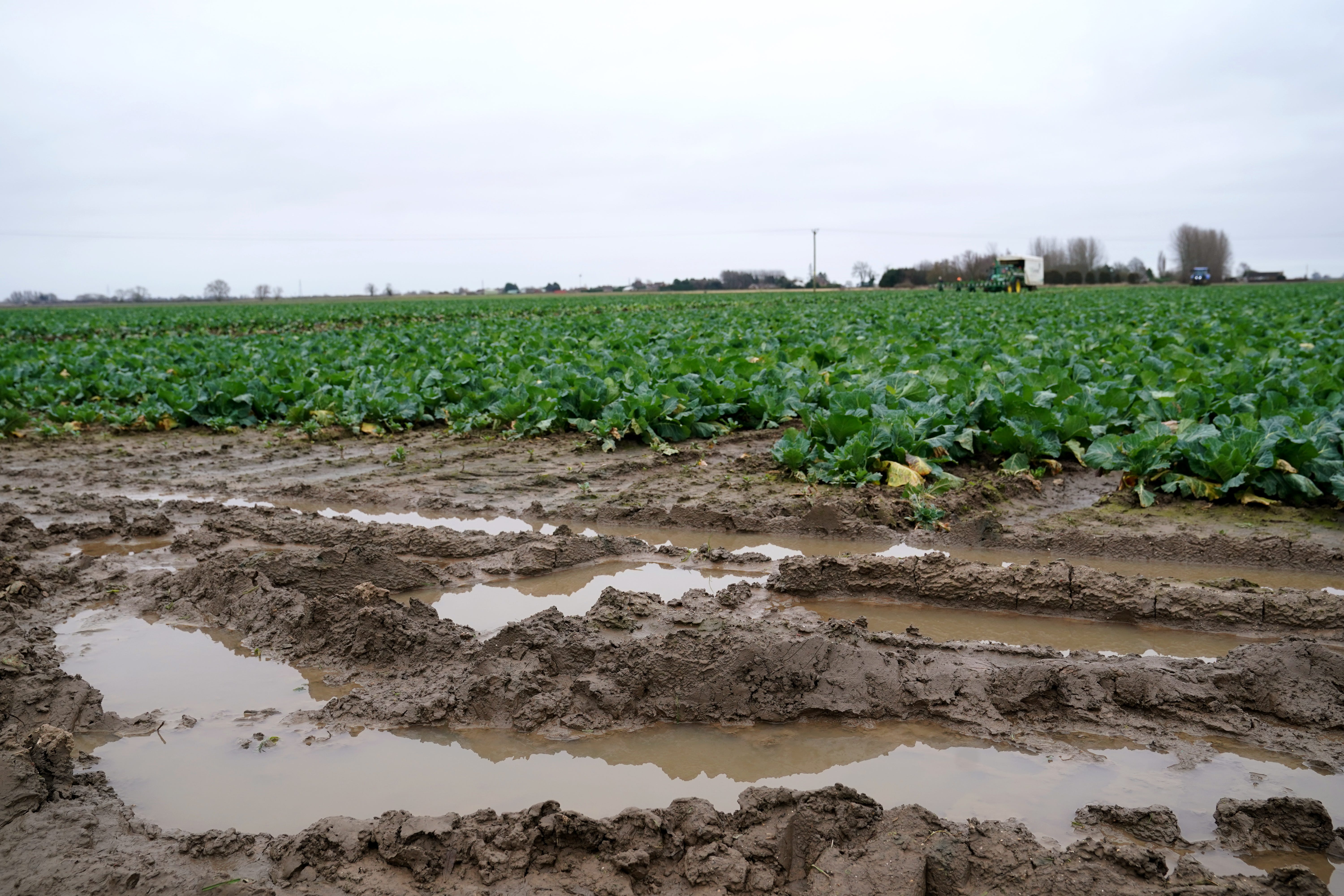UK must reduce reliance on overseas fruit and veg, PM to tell summit
The first UK Food Security Index is to be published to ‘ensure the Government and sector is resilient to unexpected shocks to the market’.

The UK needs to reduce its reliance on overseas fruit and vegetables and back British producers, Prime Minister Rishi Sunak will tell his Farm to Fork summit on Tuesday.
The second annual summit will include publication of the first UK Food Security Index, which would “ensure the Government and sector is resilient to unexpected shocks to the market and extreme weather”, Downing Street said.
The Prime Minister is to tell British farmers and growers that they are “vital to the security and the fabric of our country”.
The first draft of the security index would allow the Government, industry and farmers to monitor the impact of external factors, such as Russia’s invasion of Ukraine or extreme adverse weather events.
It will set out how Government will track UK-wide food security on an annual basis, monitoring domestic food production, land use, input costs and farmer productivity.
This package of support will help farmers produce more British food, delivers on our long-term plan to invest in our rural communities, and ensures the very best of our home-grown products end up on our plates
Downing Street said this year’s index would show that the UK farming sector was at its most productive since records began.
But it will highlight that currently the UK produces the equivalent of just 17% of the fruit and 55% of the vegetables that end up on British plates, significantly lagging behind meat, dairy and grains.
Mr Sunak will announce a new horticulture resilience and growth offer, which will look to double the funding given to horticulture businesses, taking it to £80 million a year, including up to £10 million available to help English orchard growers access equipment, technology and infrastructure.
He will also promise to cut red tape around the building of glasshouses and invest a further £15 million to boost access to more resilient crop varieties that require fewer inputs and cut farmer costs.
The summit will confirm that a commissioner for the tenant farming sector will be appointed this autumn, and a new supply chain adjudicator, Richard Thompson, will also be appointed.
We will continue to invest in and support farmers to produce the best of British food to strengthen our food security, championing innovation in the sector
More than 70 businesses and producers from the food and farming industry are expected to attend the summit, including the Rodda’s dairy company, Fischer Farms, Tesco, Aldi and McCain.
It comes against a backdrop of challenges for farmers, from an unprecedented wet winter which hit harvests, to trading delays and costs, and ongoing high input costs.
The past 18 months have been the wettest on record in England, and second wettest six months across the UK.
All areas of farming – arable, livestock, poultry, horticulture and dairy – expect to decrease production over the next year, a survey by the National Farmers Union (NFU) earlier this month found.
Mr Sunak said: “Come rain or shine, I will always back British farmers. From feeding the nation to protecting our countryside, they are vital to the security and the fabric of our country.
“This package of support will help farmers produce more British food, delivers on our long-term plan to invest in our rural communities, and ensures the very best of our home-grown products end up on our plates.
“I know for many farmers, the impact of adverse weather in recent months has made working the land even harder, but my message is clear, our support for you is unwavering and we will be with you every step of the way.”
Environment Secretary Steve Barclay said: “Food security is vital to our national security, which is why today’s summit is so important, bringing together government and key representatives from the farming and food sector at Downing Street.
“This announcement will turbocharge the growth of our horticultural sector supporting the building of cutting-edge glasshouses and innovative farming techniques to put British fruit and vegetables on our plates all year round.
“We will continue to invest in and support farmers to produce the best of British food to strengthen our food security, championing innovation in the sector.”
Shadow environment spokesman Steve Reed said: “After 14 years of Tory failure, our farmers are at breaking point.
“The Conservative government has stood idly by as farmers – including our great fruit and veg growers – have been devastated by flooding, skyrocketing energy prices and undermined by dodgy Tory trade deals. As a result, thousands are being forced out of business.
“Labour will introduce a New Deal for Farmers to put money into their pockets and boost Britain’s food security. We will cut farmers’ energy bills, slash red tape at the borders to get our food exports moving again, and use the Government’s own purchasing power to back British produce.”
Sir Robert Goodwill, chairman of the Environment, Food and Rural Affairs Committee (Efra), said: “My committee’s Food Security Report called on the Government to hold an annual summit, so we welcome the second annual summit taking place today and believe it presents a significant opportunity to tackle the serious issues facing farmers and the food supply chain.
“We are pleased that today’s summit sees the publication of the first UK Food Security Index, as my committee pushed for in its report. We urge the Government to keep its commitment to enshrine the requirement to publish the index in law and to do so at the earliest opportunity.
“The farming sector works tirelessly to feed the nation and protect its natural environment, and I wholeheartedly welcome the PM’s commitment to backing our British farmers.
“It is vital that farmers and agricultural industries are provided with the support they need to thrive, against the difficult conditions they are facing.”
Bookmark popover
Removed from bookmarks